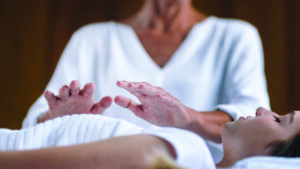In today’s fast-paced world, anxiety has become a common companion for many. The pressure to meet daily demands, maintain relationships, and succeed professionally often leads to emotional and physical imbalances. As a result, more people are turning to holistic practices to restore inner peace and harmony. One such practice that has gained global recognition is Reiki—a Japanese healing technique focused on balancing energy and reducing anxiety.
What Is Reiki?
Reiki (pronounced ray-key) is a form of energy healing that originated in Japan in the early 20th century. The word “Reiki” combines two Japanese terms: “Rei” (universal) and “Ki” (life energy). This technique is based on the idea that an unseen life force energy flows through us and is what causes us to be alive. When this energy is low or blocked, we’re more likely to feel stress or get sick. When it’s high and flowing freely, we are more capable of feeling happy and healthy.
A Reiki session typically involves a practitioner placing their hands lightly on or just above the client’s body in specific positions, acting as a channel for the universal energy to flow. The goal is to stimulate the body’s natural healing processes and bring the physical, mental, and emotional bodies into alignment.
Reiki and Anxiety: How It Works
Reiki’s approach to anxiety is deeply rooted in calming the nervous system and restoring energetic balance. Here’s how it helps:
1. Activating the Parasympathetic Nervous System
Reiki promotes deep relaxation, which helps shift the body from “fight or flight” mode (sympathetic nervous system) to “rest and digest” mode (parasympathetic nervous system). This transition alone can significantly reduce physical symptoms of anxiety, such as rapid heartbeat, shortness of breath, and muscle tension.
2. Releasing Emotional Blockages
Many individuals carry unresolved emotional traumas or stress in their energy field. Reiki gently brings awareness to these blockages and helps release them without the need for verbal processing. This non-invasive form of emotional release often leads to a lighter, more grounded mental state.
3. Restoring Energy Flow
Anxiety can be caused or worsened by imbalances or stagnation in the body’s energy centers, also known as chakras. Reiki works to clear and balance these energy centers, particularly the heart chakra (associated with emotions) and solar plexus chakra (linked to personal power and self-esteem), which are commonly impacted in individuals experiencing anxiety.
4. Promoting Mindfulness and Presence
Reiki encourages a meditative state, enhancing awareness of the present moment. For many, this mindfulness experience during Reiki sessions reduces overthinking, worry, and the habitual mental loops that fuel anxiety.
What to Expect in a Reiki Session
A typical Reiki session lasts between 45 minutes to an hour. You remain fully clothed and lie down comfortably, often with calming music playing in the background. The practitioner will gently place their hands on or just above your body, moving through different positions, focusing on energy centers and areas of concern. Some people feel heat or tingling, while others simply feel a deep sense of calm.
After a session, it’s common to feel relaxed, clear-headed, and emotionally lighter. Some clients also report improved sleep, better digestion, and enhanced focus in the days following Reiki.
Scientific Support and Growing Acceptance
While Reiki is considered a complementary therapy and not a replacement for medical treatment, research is beginning to validate its benefits. Studies have shown that Reiki can significantly reduce symptoms of anxiety and depression, improve mood, and even lower blood pressure. Hospitals and wellness centers around the world are integrating Reiki into their offerings for patients, particularly in oncology and palliative care settings.
Is Reiki Right for You?
Reiki is suitable for people of all ages and backgrounds. It’s especially helpful for those who:
-
Experience chronic stress or anxiety
-
Are going through life transitions
-
Struggle with sleep or concentration
-
Seek a gentle and natural way to improve emotional well-being
It’s important to find a certified and experienced Reiki practitioner who aligns with your needs and comfort level. Many also choose to learn Reiki themselves, using it as a self-care tool for lifelong support.
Final Thoughts
In a world full of external noise, Reiki offers a silent sanctuary—a place to reconnect with your inner self and restore the energy that daily life often depletes. Whether you’re managing anxiety, seeking emotional clarity, or simply yearning for a moment of stillness, Reiki may be the healing path your body and mind have been waiting for.
Stay Balanced. Stay Aligned.
Follow Evolvance.ae for more insights into holistic wellness and mindful living.
Source of information: The medical and health-related content on this website is based on information sourced from trusted platforms including WebMD, MedlinePlus (U.S. National Library of Medicine), the U.S. Food and Drug Administration (FDA), and Healthline.com. These sources are regularly consulted to ensure the accuracy and reliability of the information provided. However, this content is for informational purposes only and should not be considered a substitute for professional medical advice, diagnosis, or treatment.









